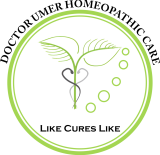Women’s Health:
Women’s health is often overlooked and undervalued, despite being critically important at every stage of life. From puberty and menstruation to pregnancy and menopause, a woman’s body goes through various physical and hormonal changes that directly impact her emotional, mental, and physical well-being. Unfortunately, these changes are frequently dismissed or misunderstood, leading to unaddressed health issues and chronic conditions.
Why Women’s Health Deserves More Attention
Hormonal fluctuations in women are natural but can lead to symptoms such as fatigue, mood swings, insomnia, and even depression. These imbalances affect daily life, relationships, productivity, and long-term health. Despite the importance of early awareness and healthcare, women’s health — especially reproductive and menstrual health — remains a taboo topic in many societies.
Shocking Statistics About Women’s Health
Lack of awareness and education continues to hinder women’s health progress. Consider the following:
-
71% of adolescent girls in India are unaware of menstruation until their first period.
-
23 million girls drop out of school annually in India when they start menstruating due to lack of support and education.
These figures highlight the urgent need for open conversations, better hygiene awareness, and proactive healthcare interventions for women.
Common Health Conditions Affecting Women
1. Dysmenorrhoea (Painful Periods)
Also known as period pain, dysmenorrhoea is a common menstrual disorder that can severely impact quality of life.
Symptoms include:
-
Cramping in the lower abdomen
-
Headaches and bloating
-
Breast tenderness
-
Fatigue and nausea
-
Diarrhoea
-
Emotional sensitivity
2. PCOS/PCOD (Polycystic Ovary Syndrome/Disease)
PCOS is a hormonal disorder causing multiple cysts in the ovaries, disrupting menstrual cycles and fertility.
Common symptoms:
-
Irregular or missed periods (Amenorrhoea)
-
Ovarian cysts
-
Acne and hair loss
-
Sudden weight gain (especially in upper body)
-
Skin darkening
-
Mood changes and fatigue
3. Fibroids and Endometriosis
These are two leading causes of heavy or irregular periods.
-
Fibroids are benign tumors in the uterus lining, often growing in size and number.
-
Endometriosis occurs when uterine lining tissue grows outside the uterus, causing severe pain.
Symptoms of both include: -
Heavy menstrual bleeding
-
Infertility
-
Chronic pelvic pain
-
Constipation and back pain
-
Pain during sex
-
Frequent urination
-
Abdominal swelling
4. Ovarian Cysts
Ovarian cysts are fluid-filled sacs in or on the ovary. Most are harmless and resolve on their own, but some may cause:
-
Pelvic pain or discomfort
-
Abdominal bloating
-
A sensation of heaviness in the lower abdomen
5. Pelvic Inflammatory Disease (PID)
PID is usually caused by sexually transmitted infections that spread to reproductive organs. If untreated, it may lead to infertility.
Watch for these symptoms:
-
Pain in the pelvic area
-
Foul-smelling vaginal discharge
-
Bleeding between periods or after intercourse
-
Pain during intercourse
-
Fever and chills
-
Painful urination
6. Pregnancy-Related Health Conditions
Pregnancy is a transformative phase but can bring several health concerns:
-
Anemia due to reduced red blood cells
-
Urinary Tract Infections (UTIs)
-
Gestational diabetes
-
Pregnancy-induced hypertension
-
Allergies and mood swings
7. Menopause
Menopause marks the end of menstruation and fertility. It’s a natural biological process, not a disease. However, it can cause:
-
Irregular periods
-
Emotional instability and mood swings
-
Sleep disturbances
-
Vaginal dryness
-
Low libido
-
Urinary tract issues
Natural and Holistic Approach to Women’s Health: Homeopathy
Homeopathy offers a personalized, gentle, and effective approach to women’s health. It doesn’t just treat symptoms but aims to restore hormonal balance and emotional well-being.
A qualified homeopathic practitioner evaluates the physical, emotional, and mental symptoms before recommending treatment. Homeopathy is widely used during:
-
Puberty and menstrual irregularities
-
Fertility issues
-
Pregnancy and postpartum care
-
Menopausal transition
Final Thoughts
Prioritizing women’s health is not a luxury — it’s a necessity. Every stage of a woman’s life presents unique health challenges that deserve proper attention, education, and care. By breaking the stigma and empowering women with knowledge, we can create a healthier, more informed society.
If you’re seeking a holistic and natural treatment approach, consult a certified homeopathic doctor to guide you through the right path toward healing and balance.

